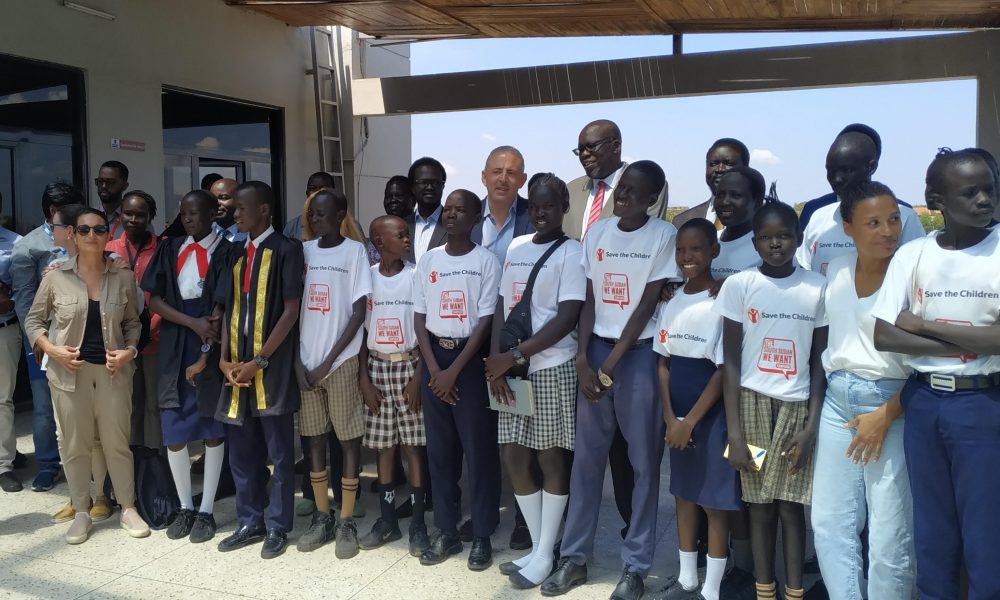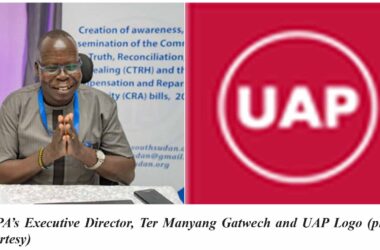By Charles K Mark
As government and development partners work to promote girls’ enrolment and retention in schools, some students are concerned about the potential consequences of empowering one gender.
This was highlighted during a child-led parliamentary session organized by Save the Children in Juba on Thursday, November 9, 2023.
Siama Santino Ayuel, a student at the kid’s session, decided to speak up in favor of expanding the educational opportunities for boys as well as girls.
“When boys had a chance to go to school and girls remained home, we realized there was a mess, and we are now advocating for girls’ empowerment. Later, we shall also realize that girls are more empowered than boys, and then what next?” Siama wondered.
Girls Education South Sudan (GESS) has been empowering the girl child in school through funding from the European Union and other development partners, giving cash transfers to school girls in an effort to retain them in class.
But reports are emerging that in many regions across the country now, where girls have access to cash transfers and stay in class, boys are being seen taking care of livestock.
Isaac Dube, a pupil from Eastern Equatoria State, said the burden caused by too much poverty has now pushed parents to only enroll the girl child in school rather than treating both genders equally.
“The reason why many boys are not in schools is because our parents say they do not have money, so many boys are now in the streets, polishing shoes,” Dube argued.
Offering equal opportunities to both genders means giving equal opportunity to development for all in South Sudan.
While education is a beacon of hope and development, eradicating challenges facing children in education simply means reaching the children with quality education.
Another participant, Nicodemus Garang, for example, portrayed that if some imbalances are not seen, heard, and worked on, then the dreams of many young generations will remain illusions.
“If you don’t treat people equally, then you don’t want South Sudan to prosper. In my school, for example, in senior one alone, there are over 130 students, but 76 are girls and only around 50 are boys,” he cited.
Garang feels like the shift in imbalance has been created by focusing on promoting quality education for girls rather than for both boys and girls.
This aligns with speaker Siama, who earlier mentioned that there is already a mess while promoting girls’ education rather than both genders.
She revealed that the number of street children is rapidly and alarmingly increasing due to boys losing hope in education.
The children, besides calling for equal opportunities for all in education, also noted a number of challenges facing the education sector in the country.
Naomi Mamone Joseph, another participant during the session, pointed out insufficient, unqualified teachers and a lack of research materials, among others, as impediments hindering learners from assessing quality education.
“In some schools, I have seen Primary Seven leavers teaching, and you will find that some learners are better versed than those teachers. Teachers also tell us they only give us 25%, and we must find the 75%. Where will we get it from the street?” Naomi questioned.
“There are no labs; the teacher is teaching about copper II oxide, which is changing into a black solid substance when heated; now a student starts imagining different things; copper II oxide does look like a building!” she continued.
Naomi underlined that such inconveniences create unfavorable learning environments for the students, hence undermining their desires to attain quality education.




